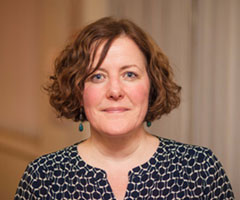Self-management for improved quality of life
Fast Facts
- Title: Developing a supported self-management programme to improve quality-of-life in adult primary brain tumour survivors
- Lead Researchers: Professor Linda Sharp
- Where: University of Newcastle upon Tyne
- When: Nov 2018 – Oct 2023
- Cost: £291,494 over a 5 year period
- Research type: Adult, Low Grade, Quality of life
What is the purpose of this study?
This is a quality of life (QoL) study which aims to develop a programme of ’supported self-management’ for adults with a low grade brain tumour who have finished primary treatment (or been recommended a ‘watch and wait’ approach by their clinicians).
The researchers acknowledge how hard it can be for people to live with and beyond a brain tumour diagnosis. They want to develop a programme where the person with a brain tumour is supported, by both their carers and their clinical team, to actively improve wellbeing.
The researchers will carry out extensive research and interviews during this grant, which will shape what the programme looks like.
Why is it important?
There’s an urgent need to find effective ways to improve QoL in adult primary brain tumour survivors.
Living with and beyond a brain tumour diagnosis can have a huge impact on many aspects of people’s lives and their QoL. With brain tumours this can include changes to their personality and behaviour, speech problems, mobility problems or even pain and fatigue.
In other long-term conditions, improved QoL has been achieved when the person personally affected is supported in playing an active role in their life through, and after, treatment. This is especially true if people are helped and encouraged to self-manage by health professionals and family members. Programmes that help survivors to help themselves (’supported self-management’) have been developed in several cancers, but the unique challenges experienced by brain tumour survivors mean that a programme needs to be tailored to this group.
Who will this study help?
Initially, this study will aim to help adults with low grade brain tumours improve their QoL after first treatment, or during their ‘watch and wait’ observations.
If feasible, the researchers aim to refine the programme so it can be used within the health service.
Patients who self-manage may feel more empowered and are better able to make informed decisions, cope with treatment and treatment-related side-effects, and navigate health systems and, consequently, are more satisfied with care.
Professor Linda Sharp
Milestones
In a recent publication the team (see below) have made 5 recommendations about how to make self-management more effective for both the health care system, and importantly for people and families who are survivors of cancer.
Progress to date:
The scope of the review has been narrowed to studies that test interventions that seek to improve patient quality of life.
- 4 hospital trusts are recruiting members to the study
- Interviews conducted with 26 patients, 14 informal carers, and 22 professionals.
- Progressing well with the analysis of carer and health professional interviews, but delayed on patient interviews due to one of the research staff being on extended leave.
- Completed, and submitted for publication, the first ever systematic review of the published literature on quality-of-life among people with low and intermediate gliomas.
- Published a systemic review of tools to measure supportive care needs in people with advanced cancer.
- Supervised two Public Health Masters Students with their dissertations, and papers are currently being drafted from both projects. (One student focused on impact of gliomas on people’s working lives; the other explored the role of social networks in glioma caregiving.).
Professor Sharp’s recommendations
Implementation of Self-Management Interventions in Cancer Survivors: Why Are We Not There Yet? – PDF
"This work highlights the essential areas that need to be addressed to improve the development and evaluation of self-management interventions for cancer survivors. If addressed, this could aid the translation of self-management interventions from research into routine cancer care." – Ben Rimmer (co-author)
Research is just one other way your regular gift can make a difference
Research is the only way we will discover kinder, more effective treatments and, ultimately, stamp out brain tumours – for good! However, brain tumours are complex and research in to them takes a great deal of time and money.
Across the UK, over 100,000 families are facing the overwhelming diagnosis of a brain tumour and it is only through the generosity of people like you can we continue to help them.
But, by setting up a regular gift – as little as £2 per month – you can ensure that families no longer face this destructive disease.

Researcher bio
Professor Sharp is a Professor of Cancer Epidemiology in the Institute of Health & Society at Newcastle University. She has had over 200 articles published in peer reviewed scientific journals.